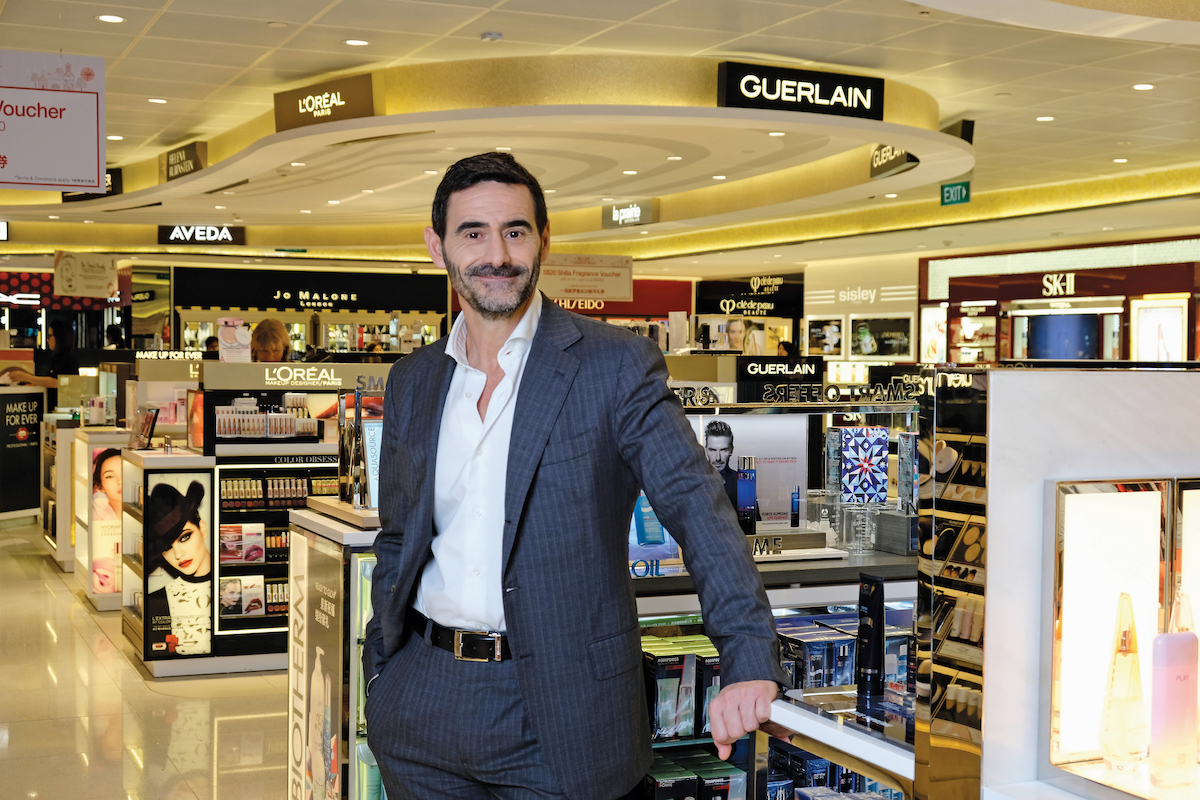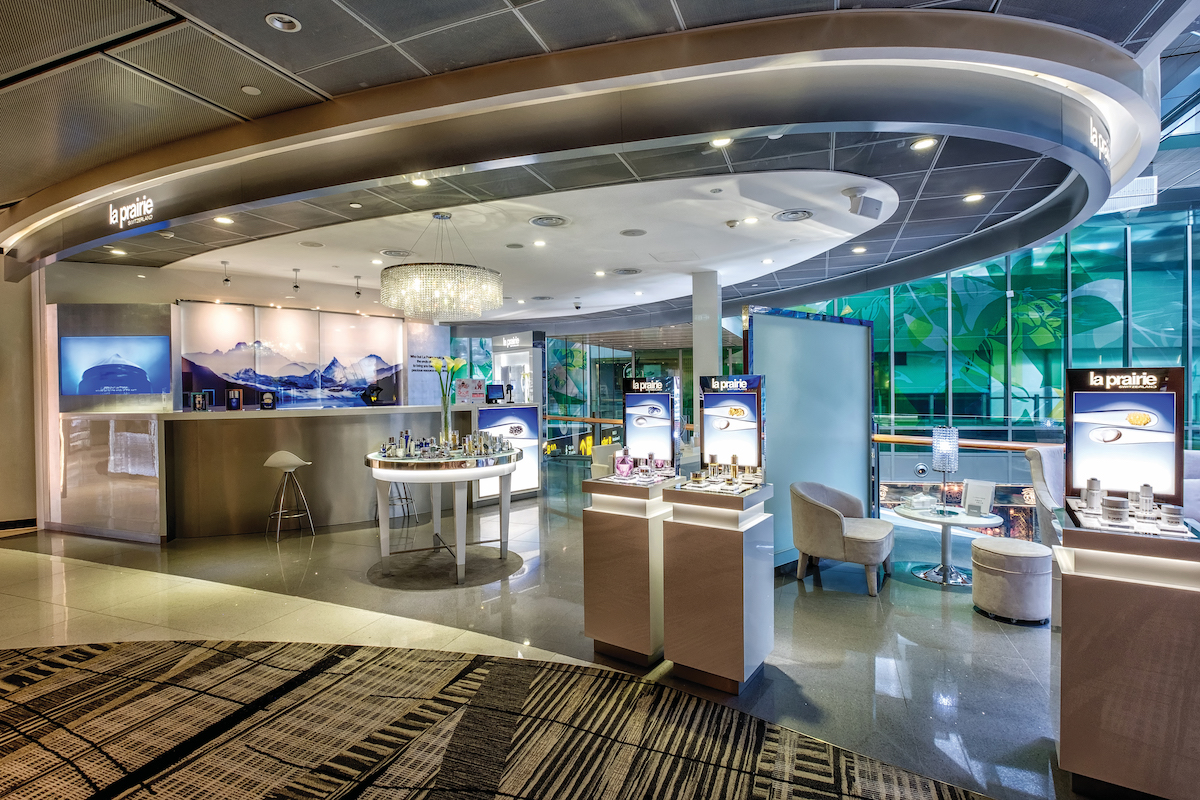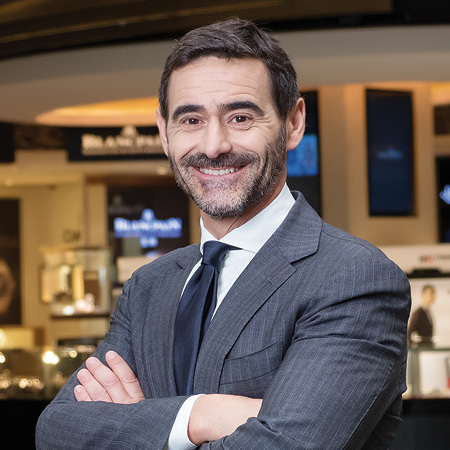The thrill of travelling overseas has often been as much about snatching a bargain at duty-free as it has been about the holiday itself. Who can resist a bargain bottle of gin? Savings on a camera? Or perhaps some designer make-up snapped up between check-in and boarding?
However, in an increasingly competitive retail market, duty-free shops are facing unprecedented challenges as savvy consumers do their homework online to unearth cheaper solutions and options for shopping and snaring a great deal. These days, who could resist having that economical camera delivered straight to the door, without the cost of an airline ticket, and all at the click of a button?
The tightening squeeze on duty-free
No-one is more conscious of the tightening squeeze on duty-free shops than Roberto Graziani, the President of Shilla Travel Retail, who joined the company in 2015 after heading up global travel retailer Nuance for more than a decade. The company is currently negotiating the acquisition of a 44-per-cent stake (with the future option to go majority) in the US-based inflight duty-free retailer DFASS Group, placing it well on track to diversify its Asian market and broaden its geographical spread into American markets. Hotel Shilla, an affiliate of Samsung Electronics listed on the Seoul Stock Exchange, opened its first duty-free store in Seoul in 1986, expanding to other sites and airport stores throughout Korea, Singapore, Macau, Hong Kong and China.

A customer can compare prices immediately and learn whether you’re selling at value for money or not. This has increased the complexity of business dramatically. – Roberto Graziani
While offering international brands alongside the widely popular Korean brands in the cosmetics, fashion, watches, liquor, tobacco, jewellery and gadgets categories, competition is fierce and Roberto is under no illusion that changes need to be made to lure customers in.
“It needs to evolve; it has to,” he says. “ 10 years ago, all you needed in a duty-free shop was a shelf full of merchandise. There was the perception that you were buying cheap, so the store didn’t have to do anything but sort out the display on the shelves. These days it’s different because more and more airports around the world have built very attractive retail environments offering further competition, and of course we can’t ignore the online channel. A customer can compare prices immediately and learn whether you’re selling at value for money or not. This has increased the complexity of business dramatically.”
Innovation & ‘retail-tainment’
While Shilla Travel Retail hasn’t baulked at technology, with 25% of its sales attributed to online shopping, Roberto is determined that its brick-and-mortar stores offer experiences to remember. One example is the Shilla Beauty Loft in Terminal 3 at Singapore Changi Airport that offers services from luxury brands like Chanel, Dior, La Prairie and SK-11. Customers, ‘retail-tainment’ and innovation are the concepts at the forefront of his mind.

“We’re looking at many ways to engage customers,” he says. “Ladies who are time pressed at the airport but want to buy a lipstick can now test it with our ‘magic’ mirror. All they have to do is stand in front of this mirror and with the press of a button they can see what a specific lipstick looks like on their lips. We also have nail bars where you can experiment with different colours, or if a cocktail bar is more your style, visit our beauty loft in Terminal 3 at Changi Airport and indulge in a new aperitif while getting a makeover or a face massage.” Shilla Travel Retail was also the first retail operator in the world to open a Louis Vuitton boutique store at an airport (Incheon-Seoul).
A new way of thinking
A major part of Roberto’s decision to join Shilla Travel Retail was the desire to explore a different world of thinking. “I wanted to enjoy the challenge of working with a different culture from the West. I like to collaborate with people who have a different way of looking at things, a different approach to business and life. Then there are the customers themselves. Korea is characterised by an excellent mix: a lot of Chinese, who are major spenders in our industry and who are extremely excited about Korean products; the Japanese; and of course the Koreans themselves. There was also the attraction of working with a company which has the ambition to grow internationally,” he adds. “Korean products, cosmetics, fashion and art are very popular. As an affiliate of Samsung Electronics, Shilla Travel Retail is naturally leveraging on technology.
We have competitive pricing, excellent service, advancements in technology, a strong understanding of customer spending, and a worldwide fascination with Korean products and culture. These are our distinctive selling propositions versus our competitors.”



